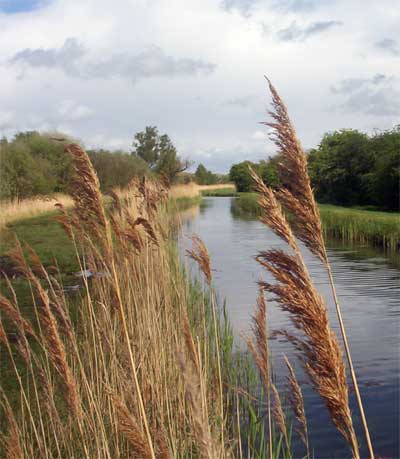Is the National Trust venturing beyond its borders?
- Complaining about the Mainland - 17th August, 2024
- New island designation – is it just greenwash? - 26th April, 2024
- Police and Crime Commissioners – a solution or a problem? - 21st April, 2024
The National Trust: one of Britain’s largest landowners, with a membership numbering a stunning 6% of the population of England, Wales and Northern Ireland. Big posh houses – yes, quite a few. But also a massive amount of very well-managed countryside, open freely to the public at no cost to the taxpayer. That’s right, it’s not part of the government, it’s a private charity. Pillar of the establishment? Perhaps not any more. The Trust might just be going back to its radical roots with a new and very different policy initiative.

When The Ranger worked for the Trust some time ago he had the task of jealously guarding the borders of his properties. With great regularity some bright spark would turn up and see if the National Trust was going to sponsor the local roundabout, help rebuild a house, lend a hand with some recycling project, donate something to someone-or-other, object to a planning application, sign a petition… you get the idea. Always the answer was ‘no’. ‘No, non, nein, our interest stops at the borders of our properties. You may have mistaken the National Trust for your local council: go and bother them’. People were often surprised and affronted that the apparently green and cuddly National Trust seemed so negative and inward-looking. But there were two good reasons for this attitude. Firstly, when it comes to actually giving stuff away it is a legal necessity – if a lot of people have put money into a tin you’re shaking for some particular cause, they might be displeased if you just take that money out and give it to some other thing you like the sound of. That’s why charities are not usually allowed to do that. Secondly, in matters of influence it’s a matter of survival. You need to ensure that what you put your name to really counts, otherwise you’ll end up advertising Dettol. If people learn that you are willing to lend your support to too many things your word ends up counting for nothing. Anyone working in the public sector can confirm this: with finite resources you have to draw the line somewhere, and in the case of the Trust they chose to do literally that at their boundaries. So it was a great surprise when The Times front page thundered:
National Trust to block green belt desecration for new homes (The Times, 3 November 2007)
In an interview with Trust chairman Sir William Proby, the Times reported him as saying that the National Trust would would buy up land or development rights on land to save green fields. In a subsequent speech to the National Trust AGM Sir William said:
What is happening to the countryside? Inch by inch, year by year its redeeming, restorative qualities are being eroded. Bypasses spawn developments filling in the ground between road and town; motorways suck vast shed-filled industrial estates in their wake… We are not against progress, nor do we hark back to some mythical golden past. We support the needs of all citizens for decent places to live and we know that some development must happen. We do recognise the need for some development and we are doing our bit to encourage new housing developments that can be done in an environmentally sensitive way… But the sheer scale of what is being contemplated now goes way beyond this. As an organisation uniquely placed to take the’long view’, we fear the consequences of the irrevocable destruction that is already underway. Surely this is a debate that we have to enter, as our founders and generations of supporters would wish us to do ” to protect the beauty and integrity of our green spaces for all of us.
What an extraordinary departure. The detail of what the National Trust intends to do is yet to be fully seen – as is always the case, it takes its time before doing anything. Having the advantage of not being a political organisation, it does not have to work to anyone else’s timetable but its own, which is very long. But another side to the Trust is that when it sets itself a task, it will set to with an implacable determination that is very hard to resist in the long run. It may take a little while to filter through, but it will come. This AGM speech marks a change in the fundamental position and practice of the Trust. It is taking sides on a matter which is not directly to do with its own properties: and one which quite obviously necessitates annoying people. The National Trust has deliberately set itself up to take a stance against over-development, and hence the government. It is perhaps no coincidence that this announcement comes shortly after Gordon Brown, with his long-professed enthusiasm for economic development and dislike for planning restrictions, has entered 10 Downing Street. It may be a quiet rebellion that has been simmering behind the scenes – Sir William did say to The Times:
We haven’t seen much evidence of government responding to what I am talking about. In fact, we feel the opposite and that the juggernaut is proceeding… It is legitimate for people to be concerned about their local environment. They should have a chance for their voice to be heard. Too many genuinely public-spirited citizens are being unjustly tarred with the Nimby brush.
That sounds a little like a call to arms. Trust managers long retired, who employed The Ranger long ago, would be tugging their beards and shaking their heads at such folly – the Trust to go out and get involved? ‘No, we never got involved’. But now, it seems, they will.
